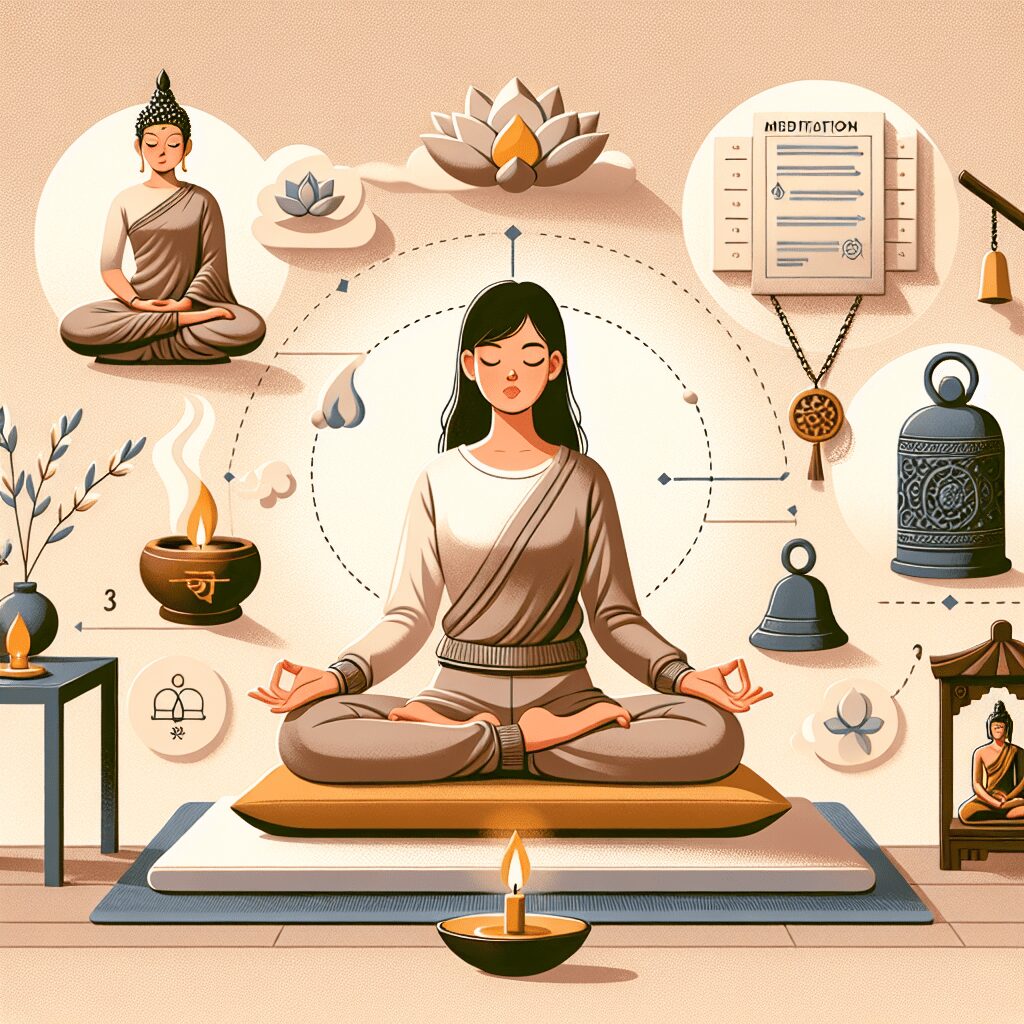
Prioritize your mental well-being daily. Enhance your life by nurturing your mental health with the Smart Meditation app. Break free from stress, alleviate anxiety, and enhance your sleep quality starting today.
Is Anxiety A Hormone Imbalance?
Unraveling the Ties Between Anxiety and Hormonal Havoc
Have you ever felt like your nerves were on a never-ending roller coaster ride, thanks to anxiety? It turns out, this psychological thrill-seeker may have a partner in crime: hormone imbalance. But is it really fair to point the finger at hormones for our sweaty palms and racing hearts? Let’s dive deep and untangle this intricate web.
Hormones: The Body’s Chemical Messengers
First off, let’s discuss what’s rolling around our bloodstream. Hormones, our body’s chemical messengers, have a job profile that’d put any multitasker to shame. They regulate metabolism, sleep, mood – you name it. When they’re off-kilter, it’s like throwing a wrench into the finely tuned machinery of our bodies. No surprise then, that a disruption in our hormonal milieu could be linked to anxiety.
The Usual Suspects
- Cortisol: Often tagged as the “stress hormone,” cortisol plays a leading role in our body’s stress response. But when it overstays its welcome, it can leave you feeling perpetually on edge.
- Estrogen and Progesterone: These sex hormones, known for their starring roles in reproductive health, are no strangers to affecting mood and mental well-being. Fluctuations, especially during the menstrual cycle, pregnancy, or menopause, can send your anxiety levels skyward.
- Thyroid Hormones: The thyroid gland and its hormones are like the conductors of your metabolism’s orchestra. Too much or too little can lead to a cascade of symptoms, including anxiety.
The Hormone Dance and Anxiety: What’s the Connection?
So, here’s the million-dollar question: Is anxiety merely a hormone imbalance? Well, it’s akin to asking if the chicken came before the egg. The relationship between anxiety and hormones is complex and bidirectional. Hormonal imbalances might amplify anxiety symptoms, while chronic stress and anxiety can throw your hormones out of whack. It’s a vicious cycle.
-
Stress Triggers Hormonal Changes: When stressed, your body pumps out cortisol. Initially, it’s a boon, prepping you to face immediate threats. However, chronic stress keeps cortisol levels high, leading to a barrage of problems, including heightened anxiety.
-
Hormonal Fluctuations Lead to Anxiety: For some, hormonal shifts during periods, pregnancy, or menopause can feel like riding an emotional rollercoaster. This volatility can make some more susceptible to anxiety.
-
An Underactive or Overactive Thyroid: Both conditions can cause symptoms of anxiety. The good news? They’re often treatable with medication, which can, in turn, alleviate anxiety.
Navigating Through the Storm
Realizing that hormones might play a role in your anxiety can be both a relief and cause for action. Here’s the lowdown on what you can do:
- Seek Professional Guidance: If you suspect your anxiety could be hormone-related, a healthcare provider can offer tailored advice and treatment options.
- Lifestyle Tweaks Can Help: Regular exercise, a balanced diet, and getting enough sleep can work wonders for both hormone balance and anxiety.
- Mindfulness and Stress Management: Techniques such as meditation, yoga, or deep-breathing exercises can decrease stress and, potentially, its impact on your hormones.
Wrapping It Up
In the labyrinth of our bodies, where hormones and emotions intertwine, anxiety finds a fertile ground. While not solely a product of hormone imbalance, there’s no denying the intricate dance between the two. Awareness and action can arm you with the tools to tackle this multi-faceted challenge. Remember, the journey to understanding and managing anxiety is as personal as your hormonal blueprint. Keeping the channels of communication open with healthcare professionals and loved ones can light your path toward balance and well-being.





